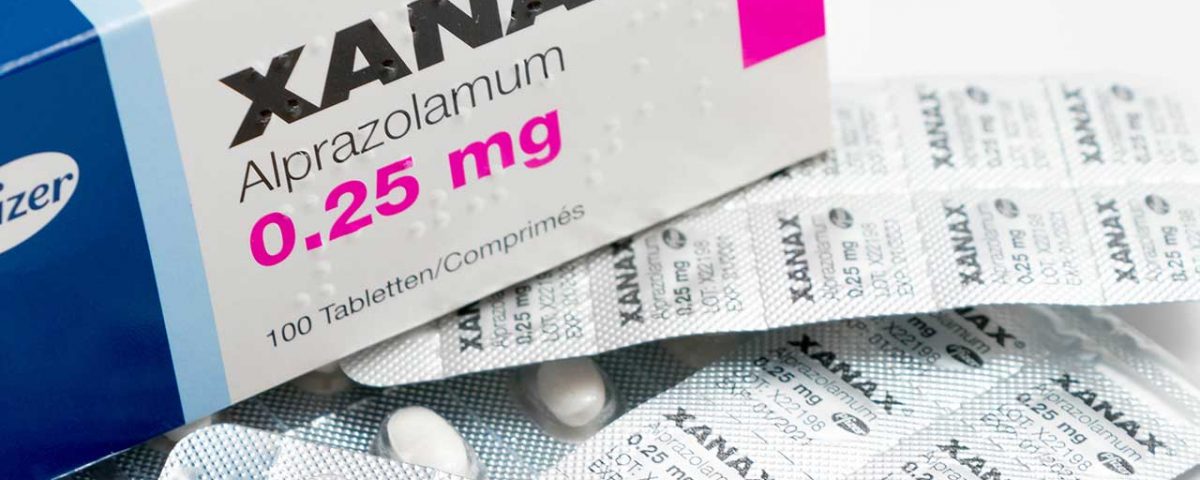Xanax is the brand name for the benzodiazepine alprazolam, which is a type of sedative that’s prescribed to treat panic and anxiety disorders. Due to its addictive nature, Xanax is usually only prescribed for short-term use, typically up to six weeks. Despite this recommendation, however, physicians continue to refill this medication at alarming rates. This was made evident in the continual rise in benzo addiction treatment – from 6,929 in 2002 to 17,019 in 2012.1 So, although the short-term risks are well-known, let’s look at the long-term effects of Xanax.
Understanding Xanax Abuse
Benzodiazepines like Xanax reduce anxiety by attaching to GABA-A receptors in the brain. When Xanax binds to this receptor, it reduces neural communication and produces a calming effect. As a result, this medication is effective in mitigating anxiety and panic disorder symptoms associated with elevated neural activity, such as rapid heart and breathing, rapid thoughts, and elevated blood pressure.
Many people who take up Xanax abuse were originally prescribed the drug for their anxiety or panic disorders. Once they saw a vast improvement in their symptoms, they were hesitant to stop using the medication. They often assume that taking more of the drug produces an even greater effect, which leads to misusing the drug by taking it in larger doses than prescribed.
Other people who develop Xanax addictions simply used the medication for too long and often with a doctor’s permission. The combination of long-term use of Xanax and elevated doses often leads to dependence and addiction before the person realizes what happened. When these individuals do realize they’re misusing their medication or relying on the drug to feel “normal,” they might try to quit without the help of a medical detox center.
The result is often uncomfortable withdrawal symptoms that are marked by a recurrence of their panic or anxiety symptoms. These symptoms might be so uncomfortable that they believe they’re unable to quit using the drug at all, or they continue using Xanax for fear of experiencing anxiety and panic symptoms again. However, Xanax abuse isn’t limited to people who have a prescription for the drug.
Alprazolam addiction is prevalent among young adults who get drugs from friends, especially college students. What’s more, according to the Substance Abuse and Mental Health Services Administration (SAMHSA), prescription drug abuse is higher among people with mental health disorders. In 2010, for instance, 31.6% of college students with mental health disorders abused prescription drugs, compared to 15% who did not have a mental health disorder.2
Pre-teens are also at risk of drug abuse, and many report that it’s easy for them to obtain prescription drugs from either family members or friends from school. This presents a concern for the long-term health of future generations who are prematurely damaging their bodies and minds.
Long Term Side Effects of Xanax
The short-term effects of Xanax include slurred speech, confusion, disorientation, euphoria, and more. It is mainly because of the euphoria and sedation that this drug produces that people might use Xanax recreationally. The immediate side effects of the drug can be felt within minutes when taken in high doses, a window that becomes wider and wider as the person’s body becomes more tolerant to the drug.
Eventually, increased tolerance and dependence contribute to long-term Xanax use. Repeating this cycle of drug-taking behavior can be both physically and mentally detrimental. The effects of alcohol on mental health are widely recognized and considering that Xanax similarly affects the brain and body, it’s no wonder this drug can worsen the symptoms it’s designed to treat in the first place if it’s abused.
In as little as eight weeks of Xanax use, natural GABA production can completely change. Without the drug, the brain would need time to adjust and relearn how to produce this chemical on its own. Accepting and learning how to manage this change is crucial for long-term sobriety.
Overall, common long-term effects of Xanax include:
- Memory loss or impairment
- Lowered IQ scores
- Vision problems or difficulty with spatial orientation
- Difficulty with problem-solving
- Impaired concentration and ability to focus
- Worsening mental health symptoms
- Loss of verbal skills or trouble learning new ones
- Reduced response time to physical and mental stimuli
- Heart problems
The long-term side effects of taking Xanax are the result of a build-up of tolerance. The more accustomed the person’s body becomes to the drug, the more of it they need to feel the same effects. In the end, this can lead to a dangerous cycle of continuous drug use.
In an attempt to further increase their desired effects, users might mix benzos with opioids or alcohol. These combinations produce extreme sensations of sedation and euphoria, which are also addictive and lead to further drug use.
Help for Xanax Addiction
If you or a loved one is struggling with Xanax’s long-term effects, our Milford treatment center can help. We offer alcohol and illicit and prescription drug addiction treatment to help people with all kinds of substance use disorders find relief and sobriety. From medical detox for withdrawals to individual therapy sessions with our licensed professionals, our clients will have everything they need to build a sober life.
Detoxing from Xanax or any drug shouldn’t and doesn’t have to be done alone. With the right care during withdrawal and treatment, users can get back on their feet and manage their disorders appropriately.
For more information about our Delaware addiction treatment and how we can help, call Banyan Treatment Center today at 888-280-4763.
Sources:
1. SAMHSA - Treatment Episode Data Set (TEDS) 2002 - 2012
2. SAMHSA - Nearly One-Third of College Student Substance Abuse Treatment Admissions with Co-occurring Mental Disorders Abuse Prescription Drugs
Related Reading:
Benzodiazepine Withdrawal Psychosis: Symptoms & Timeline
Benzo Overdose: What to Do When it Happens









